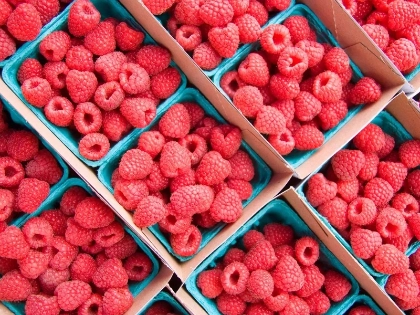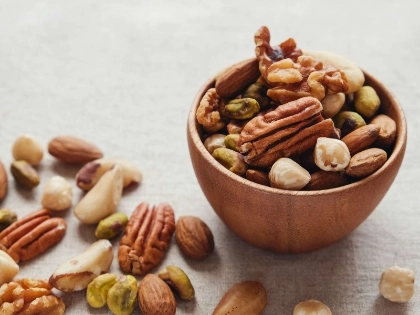Berries And Fitness: Using Nature's Candy to Boost Your Exercise
Berries have greater nutritional value and proven health benefits per mouthful than almost any other food. They make a fantastic pre-workout or gym snack, whether they are frozen, fresh, or pureed with juice. According to recent studies, eating berries before exercise may help with recuperation and avoid muscle damage. This is because the complex carbohydrates and sugar that these tiny powerhouse fruits contain can be converted into energy.
Blueberries
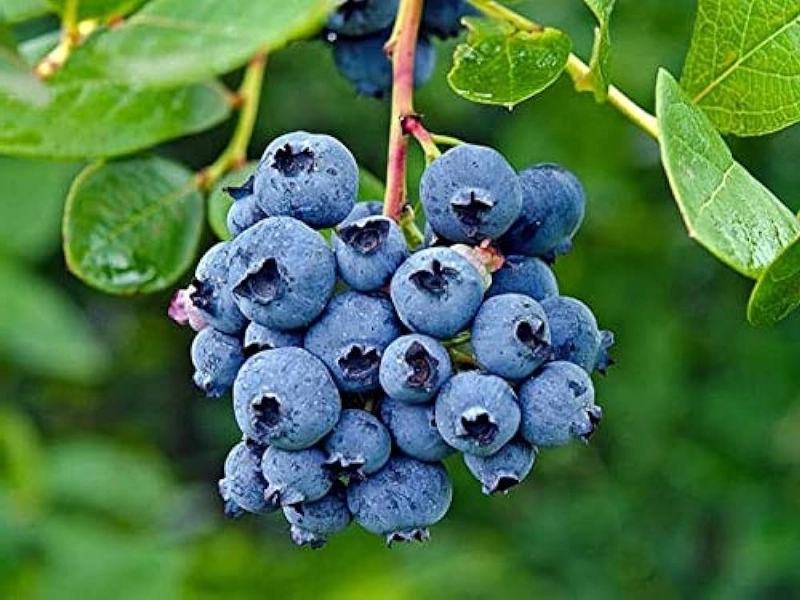
Strawberries
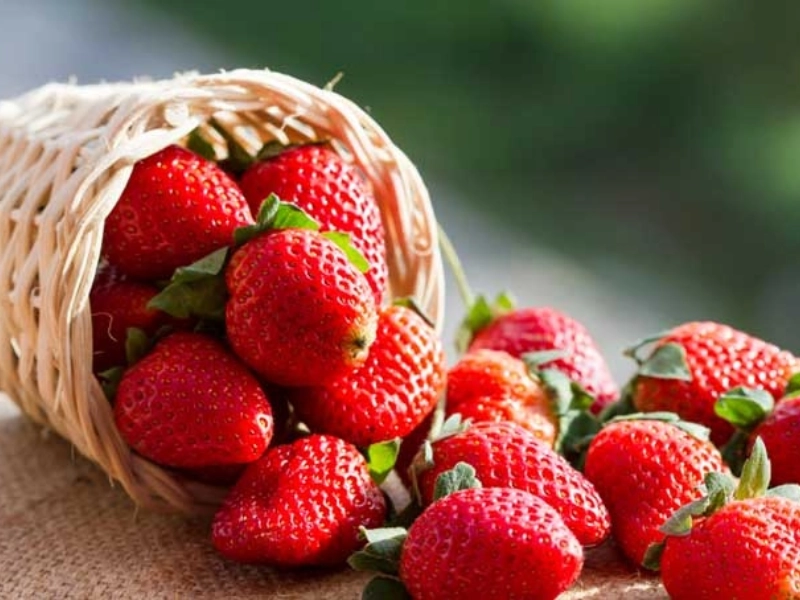 The fruit, which is high in nutrients, can be a simple and delicious addition to a pre- or post-workout snack. The abundance of vitamin C in the berries lowers blood pressure, strengthens immunity, and reduces inflammation.
In addition, strawberries are rich in dietary fiber and antioxidants called anthocyanins, which strengthen the stomach lining and guard against cancer and cardiovascular disease. Just 45 calories and 7 grams of natural sugar are found in a 1-cup serving, but it also contains a significant amount of potassium, which lowers blood pressure.
Select strawberries that have a firm texture and uniform hue. Avert rotting, damaged, or mushy fruits. A strawberry's crown, also known as the calyx, is a little cluster of leaves at the top that signifies how fresh the fruit is. Berries with a greenish hue should be avoided as they could be damaged by insects or mold. Although they're available all year round, strawberries taste best in the spring and summer.
The fruit, which is high in nutrients, can be a simple and delicious addition to a pre- or post-workout snack. The abundance of vitamin C in the berries lowers blood pressure, strengthens immunity, and reduces inflammation.
In addition, strawberries are rich in dietary fiber and antioxidants called anthocyanins, which strengthen the stomach lining and guard against cancer and cardiovascular disease. Just 45 calories and 7 grams of natural sugar are found in a 1-cup serving, but it also contains a significant amount of potassium, which lowers blood pressure.
Select strawberries that have a firm texture and uniform hue. Avert rotting, damaged, or mushy fruits. A strawberry's crown, also known as the calyx, is a little cluster of leaves at the top that signifies how fresh the fruit is. Berries with a greenish hue should be avoided as they could be damaged by insects or mold. Although they're available all year round, strawberries taste best in the spring and summer.
Blackberries
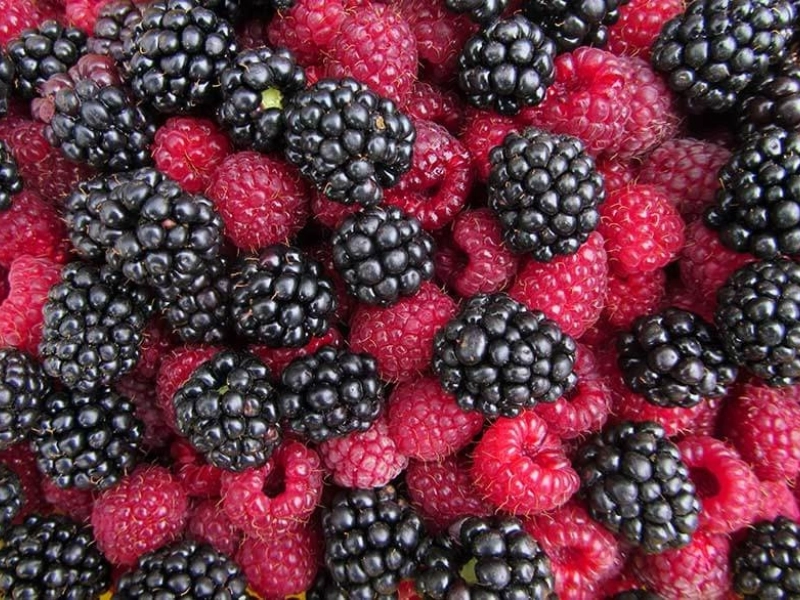 The blackberry is a favorite because of its rich flavor and dark hue. It has antioxidants, just like other berries, which help the body fight inflammation. Blackberries have long been utilized by traditional medical practitioners to aid with labor and delivery. They are used in many home medicines and have anti-viral and anti-inflammatory qualities as well.
They are a great option before a workout since they are high in fiber and antioxidants, and they include sugar, which gives you energy for a short while. Antioxidants aid in combating oxidative stress, which can harm muscle cells and arise following rigorous training.
Look for berries that are frozen or fresh, or include them into dishes like berry smoothies. Frozen berries are as nutrient-dense as fresh berries because they are harvested at the height of the season. They go well with fruit salads, oats, or yogurt. You may also eat them on their own. Blend them into a vinaigrette with a little culinary ingenuity.
The blackberry is a favorite because of its rich flavor and dark hue. It has antioxidants, just like other berries, which help the body fight inflammation. Blackberries have long been utilized by traditional medical practitioners to aid with labor and delivery. They are used in many home medicines and have anti-viral and anti-inflammatory qualities as well.
They are a great option before a workout since they are high in fiber and antioxidants, and they include sugar, which gives you energy for a short while. Antioxidants aid in combating oxidative stress, which can harm muscle cells and arise following rigorous training.
Look for berries that are frozen or fresh, or include them into dishes like berry smoothies. Frozen berries are as nutrient-dense as fresh berries because they are harvested at the height of the season. They go well with fruit salads, oats, or yogurt. You may also eat them on their own. Blend them into a vinaigrette with a little culinary ingenuity.
Raspberries
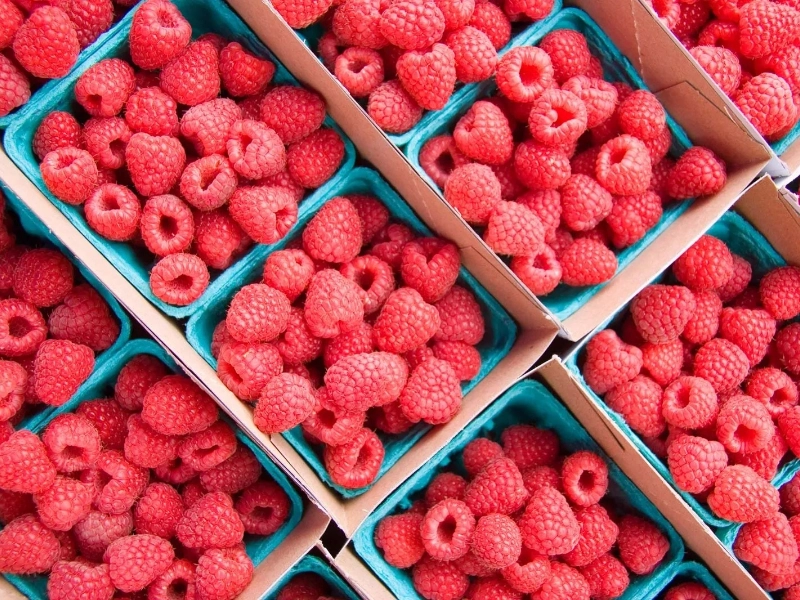 Studies show that people who consume the highest amounts of fruit, along with salmon, oats, dark leafy vegetables, nuts, and seeds, are at a lower risk of developing heart disease. Because they are rich in flavonoids, which are antioxidant plant components that strengthen the body's natural defenses, raspberries fall into the same group.
The evidence from both human and animal studies indicates that the phenolic compounds present in raspberries, such as anthocyanins, ellagic acid, ellagitannins, etc., have an impact on both established and newly emerging risk factors, such as inflammation and oxidative stress, as well as blood pressure, blood pressure-related diseases, and the development of atherosclerosis.
Try include berries in salads or smoothies to get the advantages. To make them more filling and help ward off hunger for longer, mix them with a protein source. Remember that moderation is key: eating too many berries can cause gas, bloating, and diarrhea, none of which are good for your health. Additionally, as usual, make sure the goods you are purchasing are all-natural and sugar-free by reading the labels on food items.
Studies show that people who consume the highest amounts of fruit, along with salmon, oats, dark leafy vegetables, nuts, and seeds, are at a lower risk of developing heart disease. Because they are rich in flavonoids, which are antioxidant plant components that strengthen the body's natural defenses, raspberries fall into the same group.
The evidence from both human and animal studies indicates that the phenolic compounds present in raspberries, such as anthocyanins, ellagic acid, ellagitannins, etc., have an impact on both established and newly emerging risk factors, such as inflammation and oxidative stress, as well as blood pressure, blood pressure-related diseases, and the development of atherosclerosis.
Try include berries in salads or smoothies to get the advantages. To make them more filling and help ward off hunger for longer, mix them with a protein source. Remember that moderation is key: eating too many berries can cause gas, bloating, and diarrhea, none of which are good for your health. Additionally, as usual, make sure the goods you are purchasing are all-natural and sugar-free by reading the labels on food items.


